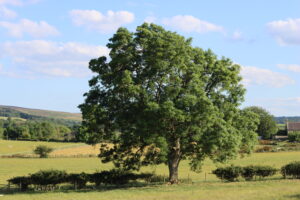400,000 insect species face extinction due to the heavy use of pesticides, a report says.
Insects are dying out up to eight times faster than larger animals and 41% of insect species face extinction, a report commissioned by an alliance of Wildlife Trusts in the southwest has revelaed.
The trust said this is a grave cause for concern as, without insects, many birds, bats, reptiles, amphibians, small mammals and fish would die out as they would have nothing to eat, along with the three out of four crops that we grow that require pollination by insects.
Loss of insect habitats and overuse of pesticides are two of the major causes of this looming catastrophe according to invertebrate expert, Dave Goulson, Professor of Biology at the University of Sussex and author of the report, Insect Declines and Why They Matter, said.
He said that, over the last century, natural and semi-natural habitats have been cleared at an accelerating rate to make way for farming, roads, housing estates and other human endeavours. Meaning many important insect populations now only exist on small, highly fragmented and isolated islands of habitat.
He also blamed the 17,000 tons of pesticides that are broadcast across the UK’s landscape each year, much of which is associated with intensive farming. And highlighted the destructive capacity of domestic usage, namely the numerous insecticides, fungicides and herbicides are freely available from garden centres, DIY stores and even supermarkets. He said:
‘Insects make up the bulk of known species on earth and are integral to the functioning of terrestrial and freshwater ecosystems, performing vital roles such as pollination, seed dispersal and nutrient cycling. They are also food for numerous larger animals, including birds, bats, fish, amphibians and lizards. If we don’t stop the decline of our insects there will be profound consequences for all life on earth.
‘And it’s not just our wild bees and pollinators that are declining – these trends are mirrored across a great many of other invertebrate species. Of serious concern is the little we know about the fate of many of the more obscure invertebrates that are also crucial to healthy ecosystems.
‘What we do know however is that the main causes of decline include habitat loss and fragmentation, and the overuse of pesticides. Wild insects are routinely exposed to complex cocktails of toxins which can cause either death or disorientation and weakened immune and digestive systems.
‘The consequences are clear; if insect declines are not halted, terrestrial and freshwater ecosystems will collapse, with profound consequences for human wellbeing.’
Dr Gary Mantle MBE, chief executive of Wiltshire WT and sponsor of the report said the fundamental building blocks of life are at risk, but people can change the future for insects by building ‘bug hubs’ in their gardens and reducing their use of harmful chemicals at home. He said:
‘This unnoticed apocalypse should set alarms ringing.
‘We have put at risk some of the fundamental building blocks of life. But as this report highlights, the main causes of insect declines are known and we can address them; insects and other invertebrates can recover quickly if we stop killing them and restore the habitats they require to thrive.
‘But we all need to take action now in our gardens, parks, farms, and places of work.’
Photo Credit – Pixabay















